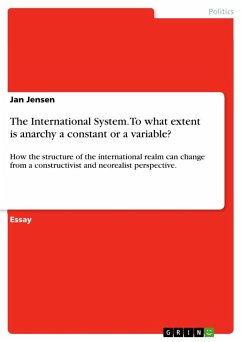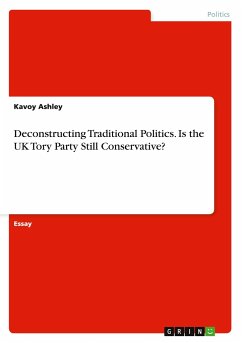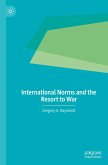Seminar paper from the year 2017 in the subject Politics - International Politics - General and Theories, grade: B, , course: International Relations Theory, language: English, abstract: This paper presents a review of Alexander Wendt's article 'Anarchy is what States Make of it' by outlining and analysing some of his main arguments including the construction of anarchy, applying social theories to the world of politics, the importance of identities and interests in international relations. Alexander Wendt particularly focuses on the structures and systems in making his arguments, which he has also illustrated constructivism's stance on the idea of anarchy in International Politics and the importance of understanding interaction towards achieving the possibility of positive transformation and cooperation, similar to the neoliberals' view.In describing the international system of politics, the traditional approaches have assumed that the structure is anarchical among states and that it is fixed and 'exogenously given'. Realists, especially neo-realists or structural realists have talked about anarchy in explaining the uncertainty over security and conflict within the system. Liberals accept that competitions exist among states and that the system is and will always be 'decentralized' but also quite agree with neo-realists that the competitive politics are inevitable due to anarchy. The rise of constructivism in the 1980s, however, has brought up anarchy in discussion again and has responded to the dominant ideas regarding anarchy but more specifically, neo-realists and neo-liberals.








